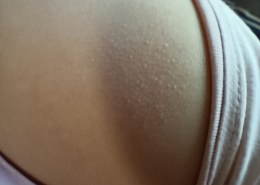Yes hello how do I get on esketamine treatment. Thank you
Experiencing sharp pain in the nose and face, particularly if it persists for several days, can be indicative of sinusitis or another underlying condition affecting the sinuses. Sinus pressure often results from inflammation or infection, leading to symptoms such as congestion, facial pain, and presRead more
Experiencing sharp pain in the nose and face, particularly if it persists for several days, can be indicative of sinusitis or another underlying condition affecting the sinuses. Sinus pressure often results from inflammation or infection, leading to symptoms such as congestion, facial pain, and pressure. Here are some strategies to relieve sinus pressure and guidance on when to seek medical attention:
Self-Care Measures to Relieve Sinus Pressure:
1. Nasal Irrigation:
– Use a saline nasal spray or perform nasal irrigation with a neti pot to help clear mucus and reduce congestion. This can alleviate pressure and improve breathing.
2. Steam Inhalation:
– Inhale steam from a bowl of hot water or take a hot shower. The moisture can help loosen mucus and relieve sinus pressure.
3. Hydration:
– Drink plenty of fluids to thin mucus secretions, which can facilitate drainage and reduce pressure.
4. Warm Compress:
– Apply a warm compress to your face, particularly over the sinus areas, to help ease pain and pressure.
5. Over-the-Counter Medications:
– Consider using decongestants or antihistamines if allergies are contributing to your symptoms. Nonsteroidal anti-inflammatory drugs (NSAIDs) like ibuprofen can help reduce pain and inflammation.
6. Humidifier:
– Use a humidifier in your home to maintain moisture in the air, which can prevent your nasal passages from drying out and becoming irritated.
When to See a Doctor:
– Persistent Symptoms: If your symptoms persist beyond 10 days without improvement, it may be time to consult a healthcare professional. This could indicate a bacterial infection requiring antibiotics or another underlying issue.
– Severe Symptoms: Seek medical attention if you experience severe symptoms such as:
– High fever (above 102°F or 38.9°C)
– Intense facial pain or swelling
– Vision changes or eye swelling
– Confusion or difficulty thinking clearly
– Stiff neck
– Recurrent Episodes: If you experience frequent episodes of sinusitis, it may be beneficial to see a doctor to explore potential underlying causes, such as nasal polyps or chronic sinusitis.
– Complications: If you notice any signs of complications, such as persistent headaches, ear pain, or a significant change in your sense of smell, a medical evaluation is warranted.
Clinical Considerations:
In a clinical setting, your healthcare provider may perform a physical examination and potentially order imaging studies, such as a CT scan, to assess the sinuses. They may also consider prescribing a course of antibiotics if a bacterial infection is suspected, or recommend other treatments such as corticosteroid nasal sprays to reduce inflammation.
Ultimately, addressing sinus pressure effectively involves a combination of self-care measures and professional medical evaluation when necessary. If symptoms persist or worsen, timely consultation with a healthcare provider is crucial to prevent complications and ensure appropriate management.
See less

Thank you for your inquiry. In Singapore, Esketamine treatment is approved for treatment-resistant depression and is available at both public institutions, and private psychiatric clinics. Esketamine works differently from conventional antidepressants. It acts on N-methyl-D-aspartate (NMDA) receptorRead more
Thank you for your inquiry. In Singapore, Esketamine treatment is approved for treatment-resistant depression and is available at both public institutions, and private psychiatric clinics.
Esketamine works differently from conventional antidepressants. It acts on N-methyl-D-aspartate (NMDA) receptors in the brain, and patients often experience a rapid improvement in depressive symptoms within hours or days, particularly for those who have not responded to other treatments.
However, it is essential to discuss the potential side effects with your psychiatrist before proceeding. Common side effects include dizziness, dissociation (feeling detached from reality), increased blood pressure, nausea, and headaches. Less commonly, some patients may experience more severe side effects, such as sedation or misuse potential, so careful monitoring during and after treatment is necessary.
Additionally, the treatment involves a specific protocol that includes administration under medical supervision, which can impact the cost and accessibility. Your psychiatrist will guide you through these considerations, including whether Esketamine is suitable for your condition and how to access it.
Dr Jared Ng
Medical Director, Senior Consultant, Psychiatrist
Connections MindHealth, Fullerton Health Singapore
https://connectionsmind.com/ https://www.fullertonhealth.com/
The information provided on this forum is for educational purposes only and not intended as medical advice. Please consult a healthcare provider for any medical concerns, diagnosis or treatment.
See less